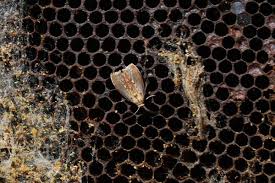

Plastic is made of polymers designed to be hard to break down and contains additives that increase durability, meaning it can remain intact for years, decades or centuries. This is “changing the paradigm of plastic biodegradation,” said molecular biologist Federica Bertocchini of the Spanish National Research Council (CSIC), who led the study published in the journal Nature Communications. The wax worm saliva contains enzymes that set off polyethylene degradation.

The researchers found that the enzymes performed this step within hours without the need for pre-treatment such as applying heat or radiation.

The answer was enzymes - substances produced by living organisms that trigger biochemical reactions.įor plastic to degrade, oxygen must penetrate the polymer - or plastic molecule - in an important initial step called oxidation. The study builds on the researchers’ 2017 findings that wax worms were capable of degrading polyethylene, though at that time it was unclear how these small insects did it.


 0 kommentar(er)
0 kommentar(er)
